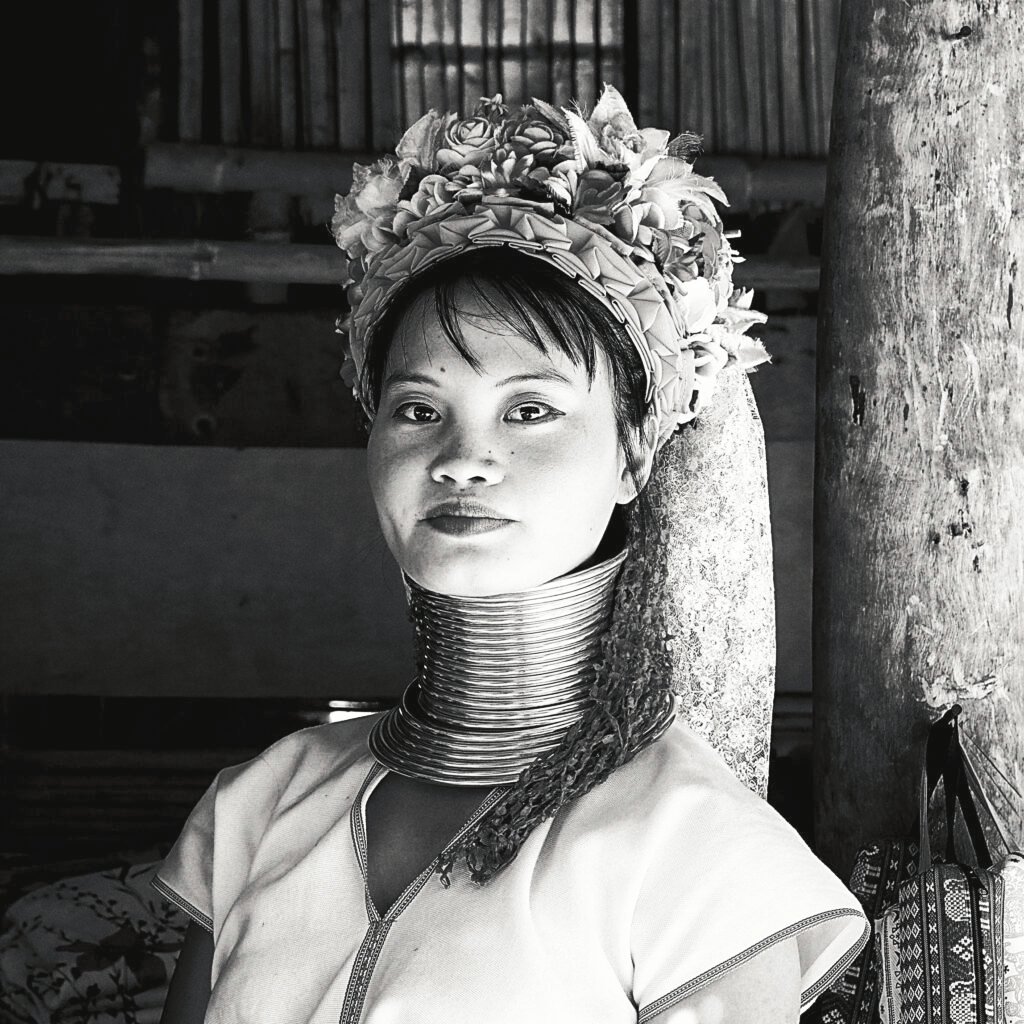
In a village stitched from bamboo and memory—tucked deep in the folds of northern Thailand’s misty hills—Nang Pru wakes before the sun and braids her hair by feel. The floor beneath her is uneven, raised on stilts. Below, chickens scratch and cough in the morning damp. Above, the air still holds the cool of night, scented with woodsmoke and boiled rice. She ties her sarong, pats the dust from her blouse, and checks the brass coils wrapped around her neck—her identity, her burden, her inheritance.
She is Kayan Lahwi, daughter of refugees, born not in the red earth of her parents’ Myanmar but on the edge of a tourist road in Mae Hong Son province. Her people fled decades ago—first from soldiers, then from landmines, and now from the silence of the stateless. The rings around her neck began at age five. A few, at first. Now, they wind upward like a golden staircase she never asked to climb.
Tourists arrive by midmorning, flushed from the bumpy ride. They pay a fee to look. Cameras click. Pru smiles. Not because she wants to, but because the family earns more when she does.
“So beautiful,” they say.
“Are they heavy?”
“Can you take them off?”
She doesn’t always answer. Her English is scattered, pulled from signage and overheard chatter. But her silence is fluent. Her mother weaves in the back of the hut, red threads pulled taut between wrinkled fingers. Her father farms herbs no one buys anymore. Her younger brother, not yet ringed, dreams of Bangkok, or maybe just a phone with games.
Some days, she sits at the village edge, watching the green hills rise like folded cloth. Beyond them lies Myanmar—her land but not her home. She has never crossed that border. The Thai government does not grant her citizenship. She belongs to nowhere. At night, she writes in a spiral notebook. Quiet poems. Sketches of birds. Bits of her language she’s afraid will disappear.
Once, a tourist from Australia gave her a small guitar. She taught herself chords using YouTube videos on a donated phone. Now, when the guides go silent and the guests begin to drift, she sometimes plays.
The strings sound thin. But her voice? Her voice doesn’t belong to the cages. It rises, full of ash and river mist, and catches in the ears of those not too numb to listen.
She sings in Kayan, sometimes in Burmese, and just enough Thai to be understood. Her songs are not folk tales. They are not cultural exhibits. They are what it means to be nineteen and ringed with centuries you cannot untwist. She dreams of Chiang Mai. Of being something else. Maybe a singer. Maybe a nurse. Maybe just a girl with no spectators. But in the meantime, she braids her hair. Adjusts her rings.
And sings. Because no one can fence a voice.